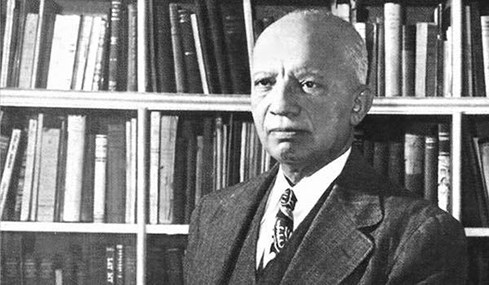97 Years of Tradition: Black History Month Started with Dr. Carter G. Woodson’s Negro History Week in 1926

Today marks the start of the 46th year of celebrating Black History Month. This tradition originally began as “Negro History Week.” Dr. Carter G. Woodson felt that African Americans were not being educated enough about their ancestors’ achievements and history, so he started the historical celebration in 1926.
For assistance in spreading the word about “Negro History Week,” which took place in February 1926, Woodson went to his fraternity, Omega Psi Phi. Given that both Abraham Lincoln and Fredrick Douglass share a birthdate in February, Woodson decided for that month over all others in the calendar year.
The Woodson idea was adopted by institutions and groups all around the country. Woodson, however, had trouble locating course materials and creating a curriculum. Woodson came to the conclusion that a week of festivities was insufficient to adequately recognize the accomplishments of the past. Woodson starts to push for the expansion of Negro History Week in the early 1940s.
Advertisement
Dr. Woodson was born to former slaves James and Eliza Riddle Woodson in Dec. 1875. Early in his life, he worked on the family farm and in the Kentucky coal mines, beginning his education at 20 and graduating high school in less than two years. Woodson would earn a Bachelor of Arts and Master’s Degrees from the University of Chicago in 1908. He would later achieve his Ph.D. from Harvard University in 1912. He would go on to teach at Howard University in Washington, D.C., and the city’s branch of the NAACP. After a disagreement with their policies, Woodson moved on to found the Association for the Study of Negro Life and History, which published The Journal of Negro History in 1916, leading to Negro History Week.
Dr. Carter G. Woodson passed away from a heart attack on April 3, 1950. More individuals started to support the idea that Black History Month should be extended as Black history continued to be important in the community, and issues like civil rights and The Black Panthers came to light in the 1960s. The Association for the Study of African American History decided to officially change the week-long celebration to a month on the occasion of the 50th anniversary of the week in question, naming February Black History Month.
